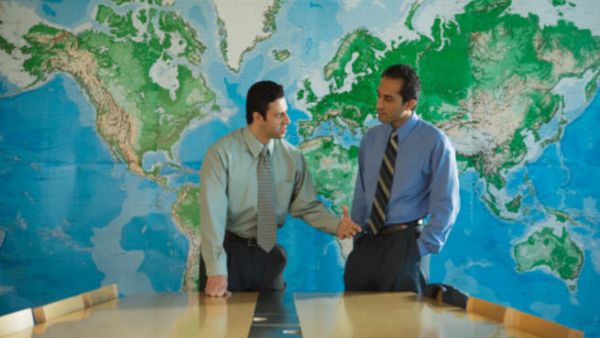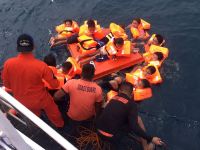The immediate political turmoil in the Arab world following the Arab Spring is not dying down, and may even increase as elections in some countries fling up unexpected results, while revolutions in others grimly continue as the people seek change. But the long-term future of the Middle East will be not be determined by governments or presidents setting their top-down agendas. Sixty percent of the 360 million Arabs are under 25, and those 216 million young people are the dominant social and political force in the region.
These millions of young Arabs do not share a coherent vision, and they come from very different starting points, but they do share one thing of which most of their parents have very little concept: they are all children of the internet age, and are used to seeing satellite TV as a matter of course. They are much more broadly informed than the previous generation, and they are not prepared to put up with the routine censorship of information that their parents considered perfectly normal.
Radical alternatives
This massive wave of young people can either be the Arab world’s greatest opportunity or greatest threat. If millions of well-educated and highly-motivated people enter the work force, the Arab world can look forward to an astonishing renaissance as 100 million new jobs are launched in the next decade, creating huge wealth and new-found long-lasting social stability.
The alternative is for the same 100 million young people to fail to find employment, face the hopelessness of bitter poverty, and withdraw from any wish to contribute to the society into which they have been born. They could seek radical alternatives of many kinds, and rip apart the present fabric of society with ease by the sheer force of their numbers.
Some of the Arab world’s brightest and best head for the Dead Sea this weekend to the World Economic Forum’s Special Meeting on Economic Growth in the Arab World, to brainstorm on how to tackle this supreme challenge.
Four themes
The over 1,000 delegates will include rulers and politicians, as well as business leaders, and academics and other experts, who will debate long into the nights on how to bring together the powerful forces of government and infrastructural support, building the right legal and financial environment to encourage private entrepreneurship, and working to spread accessible, and high-quality education.
In its efforts to find possible answers to these major questions, the special meeting will focus on four themes of finding the right conditions for macroeconomic stability and growth; creating employment; improving and making education accessible to all; and encouraging entrepreneurship across the region.
Many politicians at the special meeting will talk about the rapidly changing politics of the region, which are a crucial factor in defining how the Arab world will move forward in the immediate future. Despite the inspiring political hope that change brings, the inevitable chaos of the revolutions of the Arab Spring have hit the Arab economies badly. For example, Egypt’s GDP has declined by a massive 4 percent this year.
The special meeting coincides exactly with the elections in Tunisia, and follows one day after the death of former Libyan dictator Muammar Gaddafi at the hands of forces of the Transitional National Council. Further sources of insecurity are the Egyptian elections that are due in a few weeks with very uncertain results; and the continuing political confusion in Syria and Yemen which offers no hope of stability in the near term.
Over the three days of the special meeting, regional and world leaders will try to combine both these immediate political issues with longer-term economic and social forces. One of the most powerful effects of the World Economic Forum meetings is to rescue these underlying issues from getting lost in the rush of more urgent political questions.
Water resources
One example on the agenda for the Dead Sea meeting is the urgent necessity to properly manage the Arab world’s water. All humans, whether they are the toughest revolutionary, the most active entrepreneur or the most reactionary politician, all share an absolute reliance on daily access to clean water.
And the Arab world has 16 of the world’s most arid and hyper-arid countries, and if governments do not act now to improve their water use, the future generations of the Arab world face a truly miserable time.
This is not yet a political necessity, but it is a reality that will inevitably impact everyone’s lives in the Arab world. The session on water resource management is where broad thinking will help it to move forward to find some practical solutions.








